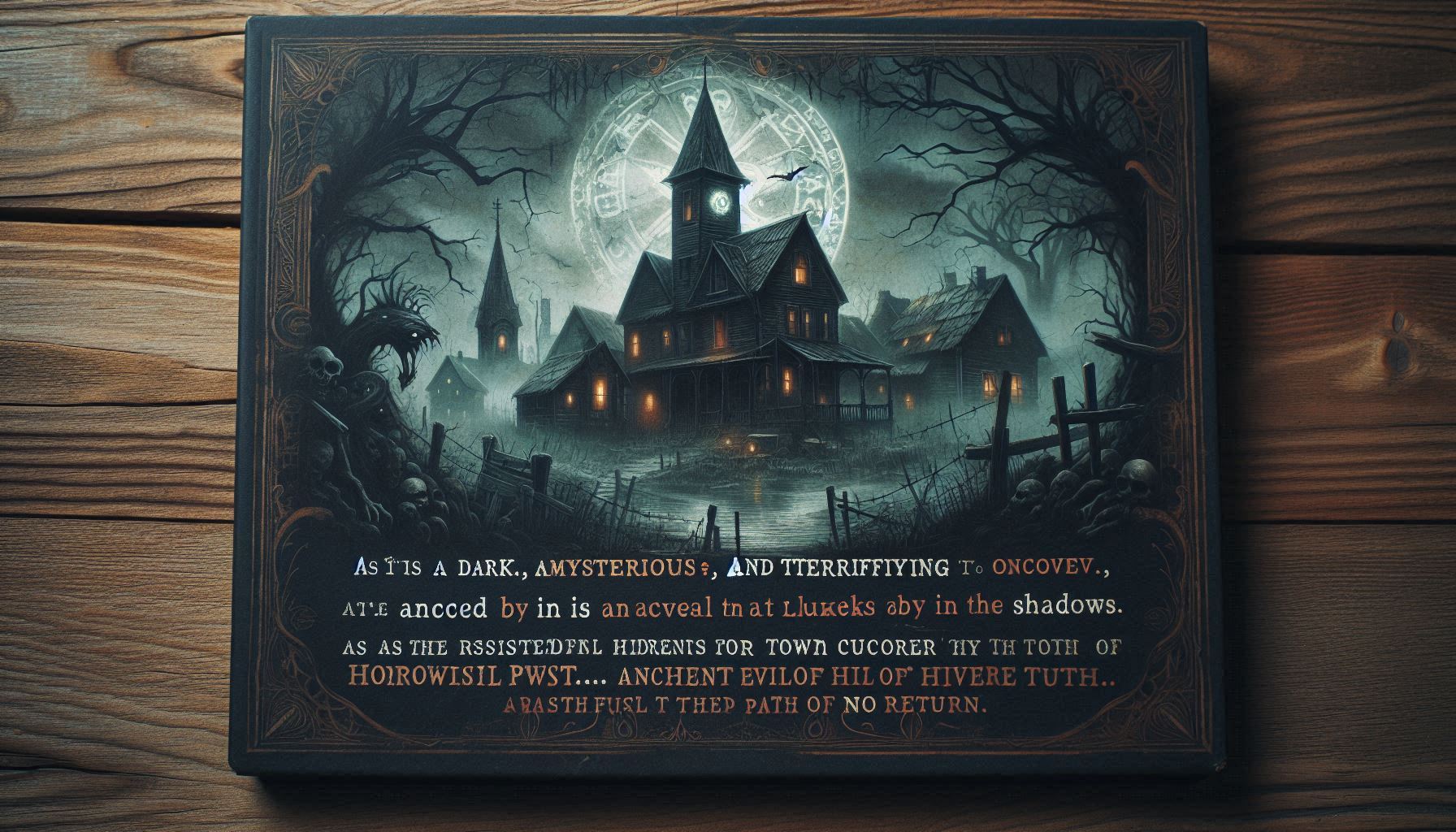
The Haunting of Black Hollow. Episode 2: The Forgotten Ones of Black Hollow
In the second episode of The Haunting of Black Hollow, the Evans family uncovers the horrifying truth about the previous occupants of their home. As they dig deeper into the town’s history, they find that the evil lurking beneath the mansion is connected to an unspeakable tragedy from the past.
The discovery of bones beneath the floorboards had shaken the Evans family to their core. But worse than the bones was the realization that the house was built upon a vast, hollow chamber—a chamber that no one seemed to know existed. The mist that had risen from beneath the floor smelled of decay, and the whispers that once plagued Clara now filled the house, following them from room to room.
Mrs. Evans, desperate to protect her daughter, pleaded with her husband to leave, but Mr. Evans was determined to understand what was happening. He sought out the local historian, an old woman named Mrs. Hawthorne, who lived in a small cottage near the town center. She was reluctant to speak at first, but after hearing what they had found, she paled and finally relented.
"You're not the first to find the bones," she whispered, her voice trembling. "But you need to know—those bones... they belong to the forgotten ones."
Confused, Mr. Evans pressed her for more information. Mrs. Hawthorne revealed that, over a century ago, Black Hollow had been home to a hidden orphanage. The children who lived there were unwanted, abandoned by society, and kept out of sight. The orphanage was run by a man named Isaac Crowley, a strict, cold figure who believed that the children were burdens to be punished for their existence.
One night, a fire broke out in the orphanage, and the building was destroyed. No one came to save the children, and their remains were never recovered. The town had buried the tragedy, ashamed of how they had ignored the orphanage, how they had let the children die. But Mrs. Hawthorne believed that the souls of the forgotten children had never left.
"They were trapped," she said, her eyes filled with sorrow. "And they’ve been waiting for someone to hear their cries."
Mr. Evans returned home, shaken by what he had learned. He shared the story with his wife, but Clara, who had been listening from the doorway, interrupted. "They’re not angry," she said quietly. "They’re scared. They don’t want to be alone anymore."
That night, the whispers returned, louder than ever. But this time, they were not warnings. They were pleas—cries for help, for release from the dark chamber beneath the house. The shadows that moved through the hallways now seemed almost... desperate.
As the family huddled together in Clara's room, the floorboards began to shift again. This time, they did not rise slowly. They snapped open with a force that sent splinters flying. A cold wind rushed up from the chamber below, carrying with it the faint sound of children sobbing.
And then, in the doorway, a figure appeared—a boy, no older than ten, his face pale and gaunt, his eyes filled with sadness. He stared at them, his voice a raspy whisper. "We just want to go home."
Mrs. Evans screamed, but Clara stood up, walking toward the boy. "I can help you," she whispered back, reaching out her hand.
As her fingers touched the boy’s, the house shook violently. The walls groaned, and the floor beneath them cracked open, revealing a pit of darkness that seemed to have no end. The cries of the children filled the air, louder and more desperate than ever.
And then, as suddenly as it began, the shaking stopped. The boy and the whispers disappeared, leaving the family standing in stunned silence.
The house had gone quiet, but the Evans family knew that the spirits of the forgotten children were still there, waiting for their release.
Moral Lesson:
The past cannot be erased, no matter how deeply it is buried. Ignoring the suffering of others only ensures that their pain will haunt the future.



0 Comments